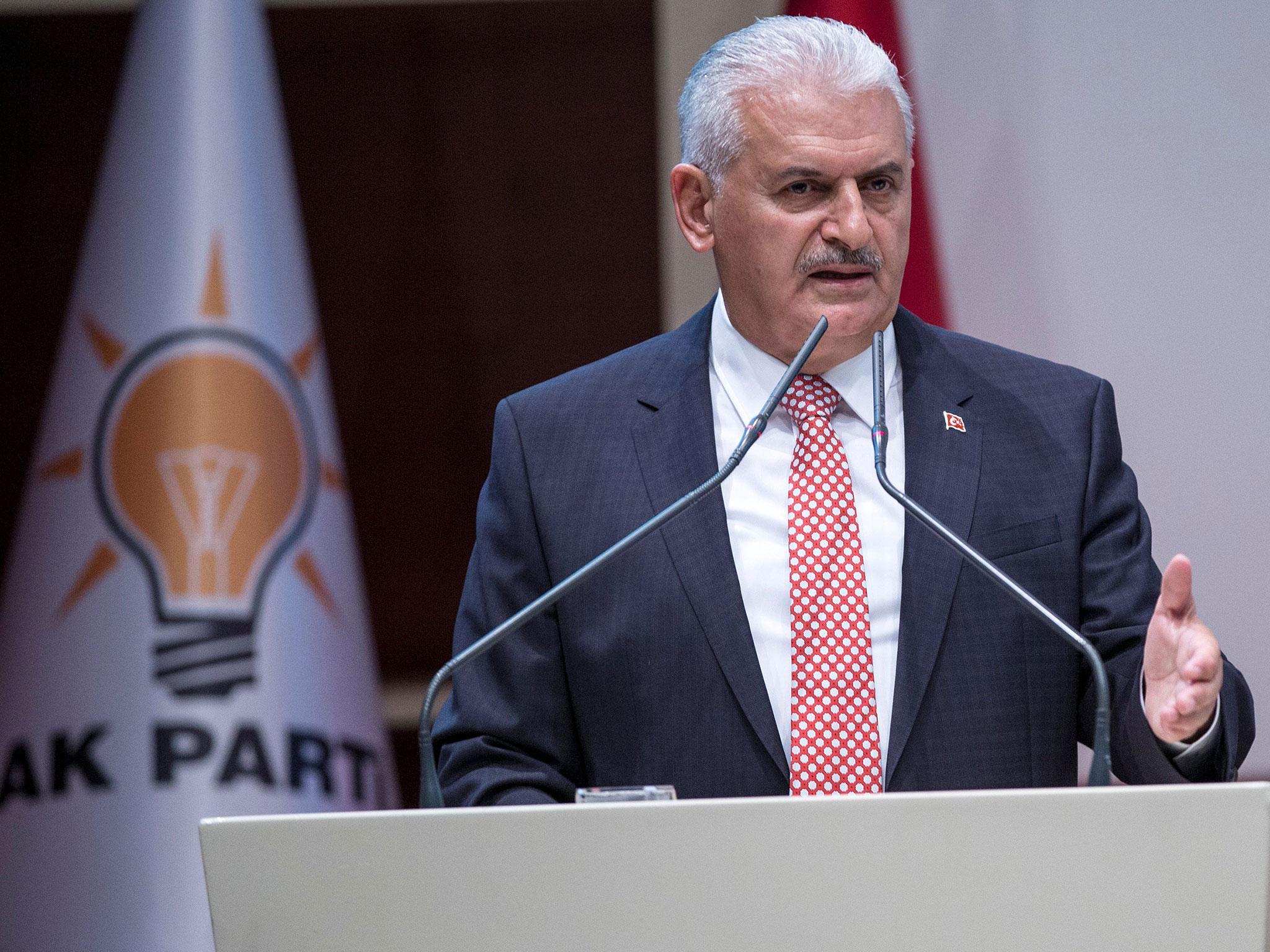Turkey's relationship with EU has reached 'lowest point', says Turkish PM
Response came after leading European human rights body placed Turkey on watchlist

Turkey's relations with the European Union have reached their lowest point in recent times, Prime Minister Binali Yildirim has said.
His comments came after a leading European human rights body placed Turkey back on a watchlist over concerns about the functioning of democratic institutions in the country.
Mr Yildirim told reporters Turkey would decide on what steps it would now take regarding the decision by the Strasbourg-based Parliamentary Assembly of the Council of Europe.
The 47-member based council placed Turkey on the watchlist over the ongoing crackdown on dissent since last year's coup attempt, rights violations and concerns about President Recep Tayyip Erdogan's increased grip on power.

While the Council is separate from the European Union, the vote is likely to be a further setback to Turkey's bid to join the EU.
Relations with the EU soured even more during a referendum campaign this month on granting Mr Erdogan more powers, during which he accused Germany and the Netherlands of acting like Nazis by banning Turkish political rallies.
The Council of Europe applies its monitoring scheme to all countries when they join, but this was the first time it has been reopened against any member of the body, which includes Russia, Ukraine and all 28 EU member states.
In a resolution, the assembly — made up of parliamentarians from the various member states — voiced concern over Turkey's sweeping dismissal and detention of civil servants, judges, prosecutors and academics following the botched coup, as well as the closure of independent media and non-governmental organisations.
The vote to open the procedure against Ankara passed with 113 votes in favour versus 45 against. The assembly called on Turkey to swiftly lift the state of emergency and free jailed lawmakers and journalists.
The EU has already said Turkey's EU negotiations will cease should Mr Erdogan reinstate death penalty, as he has indicated he might, and the EU official responsible for negotiations with potential new member states has called for a new format of relations with Turkey.
Some EU officials hope that, even if it came to formally aborting Turkey's EU bid, the bloc could re-energise talks on trade with a Nato ally whose cooperation is vital in dealing with the unprecedented flow of refugees from the Middle East.
Others, however, say progress would be hard without a breakthrough in talks on reuniting the island of Cyprus.
Additional reporting by Reuters
Join our commenting forum
Join thought-provoking conversations, follow other Independent readers and see their replies
Comments
Bookmark popover
Removed from bookmarks